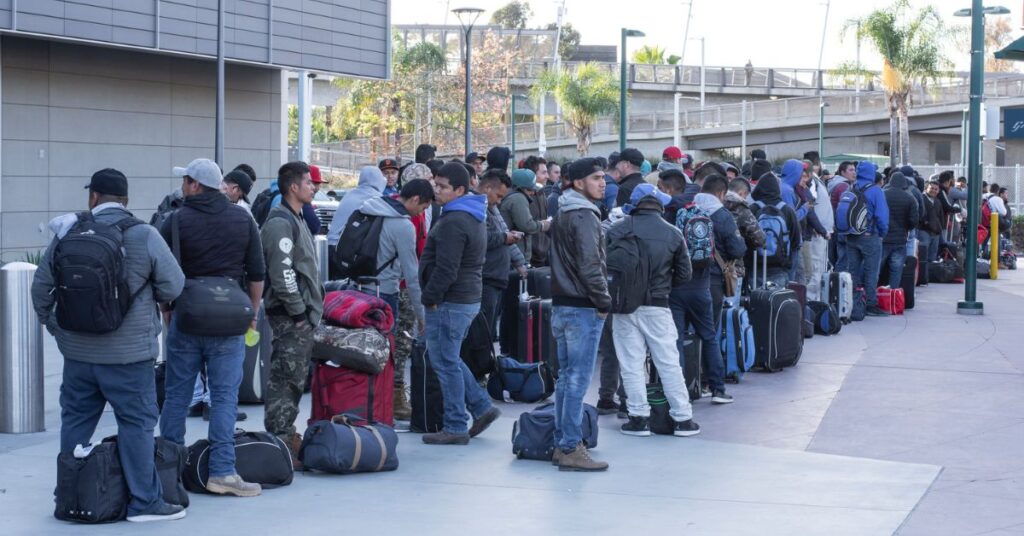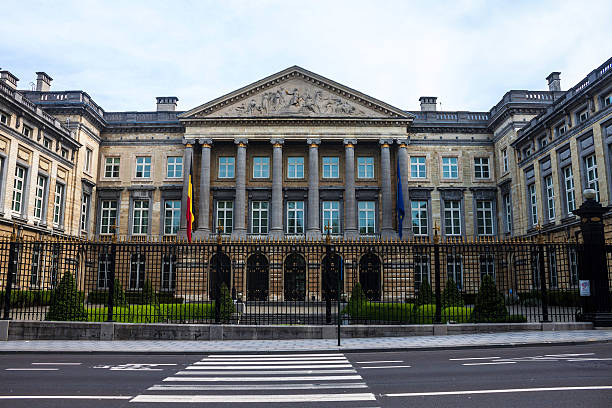
Belgium has made its asylum rules stricter. The new policy stops thousands of migrants—especially those already protected in other EU countries—from reapplying for asylum or using shelter services.
Migration Minister Anneleen Van Bossuyt led this change, which has stirred strong debate across the country.
New rules target repeat applications
On August 4th, Belgium started enforcing new asylum rules under what officials call “crisis measures.” The policy automatically rejects any new asylum request as “inadmissible” if the person already has protection or an ongoing case in another EU country.
The goal is to stop “asylum shopping,” a term that officials use for people who apply for asylum in several countries.
“Asylum is about protection. Those who have that elsewhere in Europe should no longer have access to our shelters,” Van Bossuyt said. “The era of asylum shopping must come to an end.”
Under these rules, Belgium’s General Commissioner for Refugees and Stateless Persons will now dismiss repeat claims more quickly.
Last year, almost 15,000 of the 40,000 asylum requests Belgium received came from people already covered or waiting for decisions in other EU states.
Reception shelters no longer guaranteed
These changes affect more than just legal status. They also limit access to shelter, which many asylum seekers depend on.
People whose asylum claims were denied in other parts of Europe will no longer be allowed into Belgium’s reception centers, even if they come with children.
One rule, seen as especially harsh, removes the right to shelter for those who reapply through a child unless they can show important new evidence.
This rule focuses on adults who were previously rejected and try to reopen their case by applying under a child’s name.
Van Bossuyt defended the policy, saying that it prevents people from misusing the system. “We want to stop the use of children to prolong procedures and shelter,” she said.
Critics warn of worsening homelessness
Advocacy groups warned that the new rules could put vulnerable people at serious risk. The Flanders Refugee Council raised concerns, arguing that the government is avoiding its responsibilities instead of addressing them.
“This will shift problems elsewhere rather than solve them,” said policy officer Thomas Willekens. “It risks increasing homelessness and inhumane conditions, as people are denied shelter or face poverty.”
Willekens also questioned how Belgian officials would confirm if someone had already applied for asylum in another EU country. He raised doubts about how reliable and transparent the data-sharing between migration authorities really is.

Political backing and public response
The legislation passed in Belgium’s federal parliament in early July with support from the Arizona coalition, a center-right alliance that backs tougher migration controls.
Officials said that the goal is to free up resources and reduce pressure on the overcrowded reception system.
However, some lawmakers and civil society groups argued that the approach lacks compassion and foresight. They pointed out that while Belgium tightens its borders, other EU countries may soon face similar burdens without coordinated regional solutions.
“This is not burden-sharing. It’s burden-pushing,” said one anonymous parliamentarian critical of the policy. “We’re walling off the problem instead of addressing it.”
Broader European context
Belgium’s move is not isolated. Several EU countries, including Germany and the Netherlands, have also introduced or proposed stricter border and asylum controls in recent months.
The European Union’s Dublin Regulation already states that asylum seekers must apply for protection in the first EU country they enter. However, enforcement has long been uneven, and many applicants seek better conditions or support by moving between states.
Van Bossuyt’s policy attempts to strengthen that rule’s application, effectively creating a hard stop for those trying to move beyond their initial point of entry.
This is especially significant for migrants arriving first in southern EU states like Greece, Italy, or Spain, where conditions may be more difficult.
Human cost of legal efficiency
While the policy aims to streamline asylum procedures and reduce shelter overcrowding, critics argued that it overlooks the human stories behind the statistics.
Many repeat applicants flee dire situations—conflict, persecution, or abuse—and file again not to manipulate the system but to survive. A person granted protection in one country may find unsafe or unstable conditions there, leading them to seek refuge elsewhere.
By denying access to shelter, Belgium effectively forces these individuals to live on the streets or rely on unofficial aid. Homelessness, exploitation, and mental health struggles often follow.
“Shelter is not a luxury—it’s a necessity,” Willekens said. “Stripping people of basic protection undermines their dignity and Belgium’s human rights commitments.”

Border controls may tighten for travelers
Belgium’s asylum shift adds pressure to EU border systems just ahead of the European Travel Information and Authorization System (ETIAS) launch in late 2026.
Short-term visitors from visa-exempt countries must soon apply for ETIAS travel authorization, which allows multiple 90-day entries within 180 days.
The new restrictions signal stricter enforcement at borders. Though tourists aren’t directly affected, increased scrutiny could slow entry checks and raise rejection risks for travelers flagged in EU databases.
Migrants hoping to regularize their status may find fewer legal pathways, while long-term visitors could face heightened residency reviews, especially if previously denied asylum elsewhere in Europe.
National crackdowns ripple across EU migration strategy
Belgium’s policy marks a shift toward tighter national control, reflecting growing resistance to intra-EU migration.
By denying repeat applicants and shelter to those protected elsewhere, Belgium effectively pressures other EU nations to bear more responsibility. This move may encourage more states to reinterpret or harden their asylum procedures.
Critics fear a domino effect, where national crackdowns chip away at collective EU asylum principles.
With the Dublin Regulation already strained, this trend could stall long-promised reforms and deepen divides between frontline states and wealthier northern nations unwilling to share asylum burdens.
Belgium closing doors
Belgium has decided to stop providing shelter to asylum seekers who already have protection in other EU countries. It will also no longer accept repeat asylum applications. This marks a major change in its migration policy.
The government said that it wants to ease pressure on public services by limiting access to its shelter system. However, critics warned that this could lead to more people living on the streets and suffering without help.
As other European countries also rethink their approach to asylum, Belgium’s move shows a wider trend toward stricter rules. The big question now is whether these changes are needed reforms, or if they come at the cost of basic human rights.
